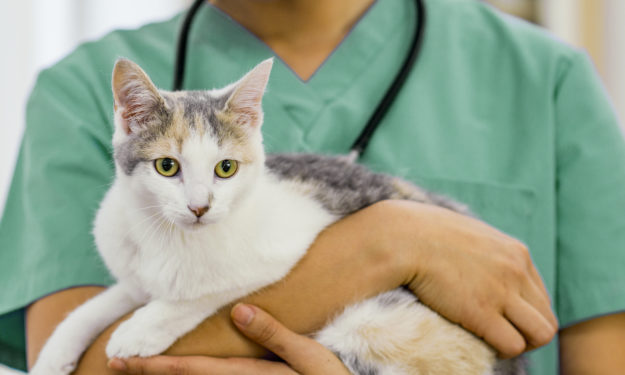5 Reasons to Have a Primary Veterinarian

Emergency. Specialty. Urgent Care. Primary Care.
To pet owners, these words on the front of veterinary hospitals and on website home pages can be confusing. Pet owners just want to know where to go when their pet needs help. And as the veterinary community evolves – from vaccine clinics inside pet stores to hospitals dedicated to urgent care and primary practice, the need to educate pet owners about how to find the right kind of veterinary care becomes more important. The first step in setting your pet up for success with their veterinary care is to establish a relationship with a primary care veterinarian.
Why are Primary Care Veterinarians Important?
Primary care veterinarians provide puppy and kitten care, vaccines, annual wellness check-ups, sick exams, and do general surgeries like spay, neuters, dentals, and mass removals. They prescribe flea, tick, and heartworm medication and perform yearly exams and bloodwork. This relationship develops into a close one as your pet typically sees them at least once a year and begin to know each other. They should be the first vet you call during regular business hours when there is a problem and are your home base for lifelong veterinary care for your pet.
Your dog gets hit by a car. Your cat is straining in the litter box. Your puppy cuts his paw pad and it won’t stop bleeding. Your first call is usually your primary care. If within their business hours and within their scope of treatment capabilities, they can usually book you for a sick exam. Sometimes your Primary Veterinarian may need to refer you to an Urgent Care clinic, or a Specialty and Emergency Hospital. These situations can mean your pet is waiting to be seen while other more critical patients get seen first.
How Can Having a Primary Care Veterinarian Help You?
1. Access to appointments
You are more likely to be added to a veterinarian’s schedule last-minute if you are a regular client.
2. Access to advice
If you have brought your pet in for the recommended yearly exam, the primary care veterinary staff can help you over the phone with some medical questions. They can tell you if it’s safe to watch your young Labrador for signs of vomiting or diarrhea after he ate something out of the garbage can. But if they haven’t seen your pet within the last year, they are legally prohibited from giving any advice at all. They will likely refer you elsewhere – most likely to an emergency hospital where they also can’t give you advice over the phone and you will have to wait to be triaged and seen.
3. Access to medications
As long as your pet has been seen within the last year, prescriptions are easier to refill, and getting Heartworm prevention prescriptions a breeze.
4. Access to specialists
Just like your family doctor can discover issues before they become life-threatening, your primary veterinarian can spot lumps and bumps, abnormal heart rates, or wonky lab results and refer your pet to a veterinary specialist before the issue progresses into dangerous territory. They can refer your pet to an oncologist, internist, surgeon – and you’ll be able to get an appointment with one of these highly sought-after doctors, who may be able to intervene before your pet’s issue escalates to an emergency situation, where your treatment options may become more limited.
5. Access to help
If the pandemic has taught pet owners – and veterinarians – anything, it’s that timely veterinary care is not guaranteed. Limits in staffing and doctors is a very real thing and fail safes like emergency hospitals aren’t always enough to get your pet in right away during a global crisis.
If you don’t have a primary care veterinarian, make an appointment with one before your pet is in an emergency situation. Find a doctor who you communicate well with, and a veterinary team who can be your allies. Get that yearly exam done. It will save you money and heartache in the long run and when your pet is in crisis, you will be glad you did.
Written by Vickie J. DeHamer, DVM